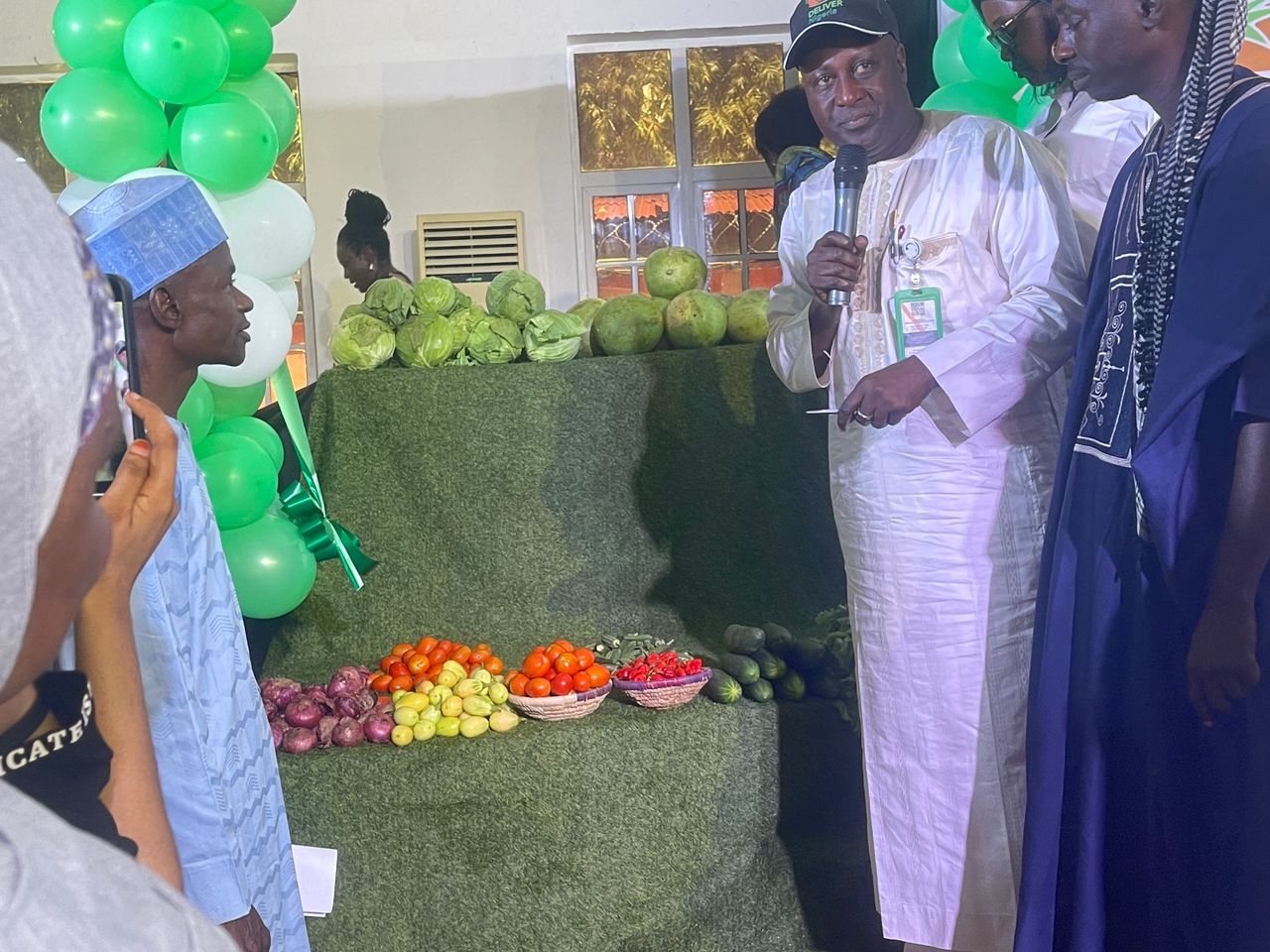Deliver Nigeria project to empower 50,000 small holder farmers in Kaduna, Kano
The Global Alliance for Improved Nutrition (GAIN), East-West Seed Knowledge Transfer Foundation (EWS-KT), and Wageningen University & Research (WUR) have launched the DELIVER Nigeria (DEcent LIVelihoods for small-scale producers delivered through Economic & Resilient food systems in Nigeria) project aimed at empowering 50,000 farmers in Kaduna and Kano states. Speaking at the launch of the […]

small holder farmers
The Global Alliance for Improved Nutrition (GAIN), East-West Seed Knowledge Transfer Foundation (EWS-KT), and Wageningen University & Research (WUR) have launched the DELIVER Nigeria (DEcent LIVelihoods for small-scale producers delivered through Economic & Resilient food systems in Nigeria) project aimed at empowering 50,000 farmers in Kaduna and Kano states.
Speaking at the launch of the three-year project, Country Director, GAIN, Dr. Michael Ojo, said the aim of the project is to enhance the livelihoods of smallholder vegetable farmers and promote healthier dietary habits in Kaduna and Kano states.
He said the DELIVER Nigeria Project is part of the Accelerating Resilient Food Systems in Africa (ARFSA) program, administered by the Netherlands Enterprise Agency (RVO) on behalf of the Netherlands Ministry of Foreign Affairs saying the project will leverage on Transforming Nigeria’s Vegetable Markets project (SDGP1) to address still yet key challenges facing smallholder farmers, including low yields, limited market access, high post-harvest losses, and inadequate finance.
He said despite some progress in recent years, smallholder vegetable farmers in Kaduna and Kano face numerous challenges, including low yields, limited market access, high post-harvest losses, and insufficient financing.
- Ex-Minister Tallen’s only son dies in Abuja
- FG threatens to revoke Julius Berger’s contract over price dispute
- TY Danjuma’s company takes over Taraba Power Station
He noted that these issues are further exacerbated by climate change and the low consumption of vegetables in the region, which negatively impacts community health and the development of local vegetable markets.
“Through the DELIVER Nigeria Project, GAIN, EWS-KT, and WUR aim to address these challenges by empowering 50,000 households and positively impacting millions of consumers. The project will train 25,000 existing smallholder farmers, previously supported by EWS-KT, in advanced vegetable production and marketing techniques, including climate-resilient practices, enroll an additional 25,000 new farmers in similar training programs, improve financial access for 500 farmers, enabling them to scale up their operations and conduct community and market promotional activities to boost the consumption of a variety of vegetables, fostering healthier dietary habits.”
He further disclosed that the project will also build the capacity of 140 sector professionals including government extension agents, staff and students of agricultural facilities and agro-inputs dealers on crop agronomy; choice of crop and variety, fertilization, trellising, pest and disease identification and management.
In his opening remarks, the Commissioner, Ministry of Budget and Economic Planning, Kaduna state, Mukhtar Morovia represented by the Permanent Secretary in the ministry, Bashir Muhammad said the project arrived at a crucial time when Kaduna state, along with the rest of the nation, is working diligently to address the pressing issues of food security, rural poverty, and economic development.
While noting that the agricultural sector, particularly the role of smallholder farmers, remains a critical component of our economic and social development strategies he emphasised that ensuring that these farmers are supported with the right tools, resources, and opportunities to thrive is integral to our broader vision for sustainable economic growth.
“As the Ministry responsible for ensuring that the state’s resources are allocated efficiently and effectively, we recognize the significant potential that this project holds for driving economic diversification, particularly in rural areas. It has the potential to boost local economies, create jobs, reduce poverty, and ultimately contribute to achieving the Sustainable Development Goals (SDGs), which remain central to Kaduna State’s development agenda,” he said.
Also, the Commissioner, Kaduna State Ministry of Agriculture, Murtala Mohammed represented by the Director, Agricultural Services in the ministry, Bege Dutse said the state is excited about the opportunities that the project brings to improve the capacity of extension services, strengthen value chains, and create sustainable linkages between farmers and markets.
He added that with the number of extension officers in Kaduna state, the training and capacity-building components of DELIVER Nigeria will have a far-reaching impact, benefiting not just farmers, but the entire communities.
